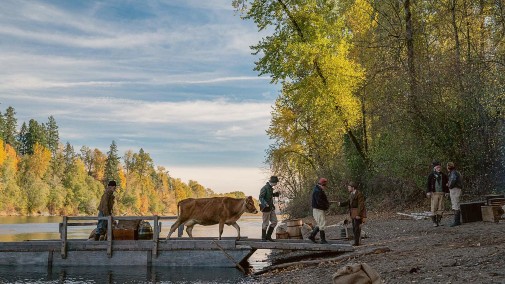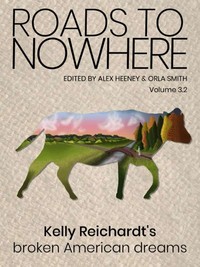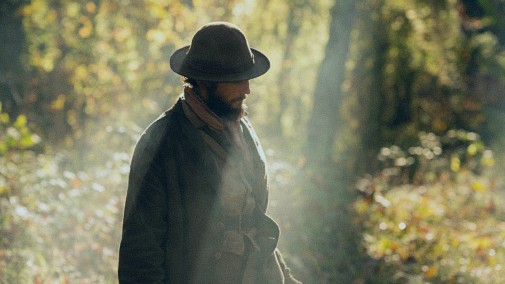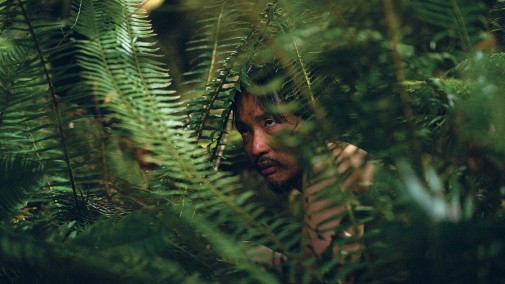Kelly Reichardt and the "Roads to Nowhere"
 Friday, October 9, 2020 at 6:41PM
Friday, October 9, 2020 at 6:41PM 
With First Cow, Kelly Reichardt reaches an apotheosis in her career. Watching the director's filmography, one wouldn't suppose she was building up towards a monument, a grand summation of an auteur's cinematic idioms and preoccupations. Yet, here we are. While Reichardt has a very characteristic style and collection of favorite themes, one of the main elements of her oeuvre is a conspicuous lack of grandiosity. She's one of the great voices in contemporary American cinema, but her works seldom underline their mastery or call back to the films that came before, their predecessors in the Reichardt canon.
Because of that, it feels like a good time to meditate on Kelly Reichardt's cinema, to revisit her features' wonder and, perchance, reevaluate what each one was trying to say. It's also an opportune moment to examine how those films were made, the methodologies of the artist. The way something is created imbues it with particular qualities, both aesthetic and ideological, thematic, and even spiritual. Helping us through this odyssey of discovery on the films of Kelly Reichardt, we now have Seventh Row's latest e-book, Roads to Nowhere: Kelly Reichardt's broken American dreams, as a handy guide…
 People alone in communion with the landscape, drifting through space in the Oregon wilderness. Long observations of non-action, stretched through real-time like gossamer fabric that never rips. The cruelty of capitalism, how it squelches life, and the small majesty of people knowing each other, drawing near or drifting away. Such things are common to nearly all seven features of Kelly Reichardt, loosely articulating a perspective on the world in front of the camera, and on cinema too. First Cow crystalizes all this in the amber of Christopher Blauvelt's evocative cinematography while the sounds of nature and William Tyler's lilting tunes complement the vision.
People alone in communion with the landscape, drifting through space in the Oregon wilderness. Long observations of non-action, stretched through real-time like gossamer fabric that never rips. The cruelty of capitalism, how it squelches life, and the small majesty of people knowing each other, drawing near or drifting away. Such things are common to nearly all seven features of Kelly Reichardt, loosely articulating a perspective on the world in front of the camera, and on cinema too. First Cow crystalizes all this in the amber of Christopher Blauvelt's evocative cinematography while the sounds of nature and William Tyler's lilting tunes complement the vision.
Some films work as perfect machines, cuckoo clocks of cinematic perfection. Every spring and screw are there for a reason, building up a filigreed wonder that's more than the sum of its parts. Reichardt may never shine a light on the mastery of such construction, but her works exhibit this exactitude, First Cow most of all. Someone has to make each part of the cinematic edifice, the cuckoo clock, and Reichardt trusts her craftspeople and creatives who help her along. Cinema is a collaborative art form, even though we may err on the side of attributing too much authorship to the directors. Reichardt's heavily involved in the process of creating each aspect of the films, but she's still working with other artists as she does it.
First Cow wouldn't be the same without the aforementioned cinematography of Blauvelt or the specificities of the score composed by Tyler, the costumes of April Napier, Anthony Gasparro's sets, the sounds designed by Leslie Shatz, or even the animal training done by Lauren Henry. The script, adapted from Jonathan Raymond's novel The Half-Life, by him and Reichardt, lays a foundation for everything that's built on top. The actors too are essential parts of the design. One can have cinema without actors, as Reichardt's experimental shorts show, but a film like First Cow requires them to breathe life into delicately sketched characters.

Speaking only for myself, I've always been fascinated, even enamored, by the collective nature of cinema as an art form. Like theatre, it demands collaboration, its final works birthed out of a dialogue between people, long e-mails exchanged between minds and imaginations, conversations, and arguments. It's maybe because of such personal loves that I find myself so besotted by Roads to Nowhere. Alex Heeney and Orla Smith have edited a book that celebrates the auteur that is Reichardt without erasing the collectivity of making movies.
Reading its over 300 pages, you'll find many interviews and essays that concern not only Reichardt but the other people who've conceived of this wondrous filmography. While there's an emphasis on First Cow, even on the cover, the book was planned before the director's seventh feature came out, which means there's plenty of attention paid to her previous works and how they exemplify the artists' vision and process. April Napier, for instance, talks extensively about the costumes of Certain Women to my great delight.
There are also plenty of essays about Reichardt's early films, writing that illuminates the echoes heard throughout a cineaste's work, the connective tissue that binds films like Meek's Cutoff and Wendy and Lucy together. This is a book about making films, but it's also about watching cinema, experiencing its refracted perspectives, and going into the imagination of others. In an early introductory piece, several writers explore 12 favorite scenes out of the Reichardt canon, highlighting how cinema belongs to its audience as much as its creators. The director may construct a pas de deux of worn-out joy, but it's the viewer whose heart resonates, or doesn't, with the sadness invoked by the picture.

Whether you just love watching films or want to explore the technical particularities of Reichardt's oeuvre, Roads to Nowhere has plenty to offer. As a Kelly Reichardt fan, I can't recommend it enough and hope that, if you do venture into its pages of knowledge and discovery, you can find as much joy as I did. In these dark days we're living, the love for cinema can act as a life raft on an ocean of despondency, but one sometimes feels alone in their cinephilia. Roads to Nowhere assures us, at least it assured me, that we're not lonesome after all. Come explore the Oregon trails and the lives of wayfinding women on this road through Kelly Reichardt's singular cinema.
You can purchase the e-book Roads to Nowhere: Kelly Reichardt's broken American dreams on the Seventh Row website.



Reader Comments